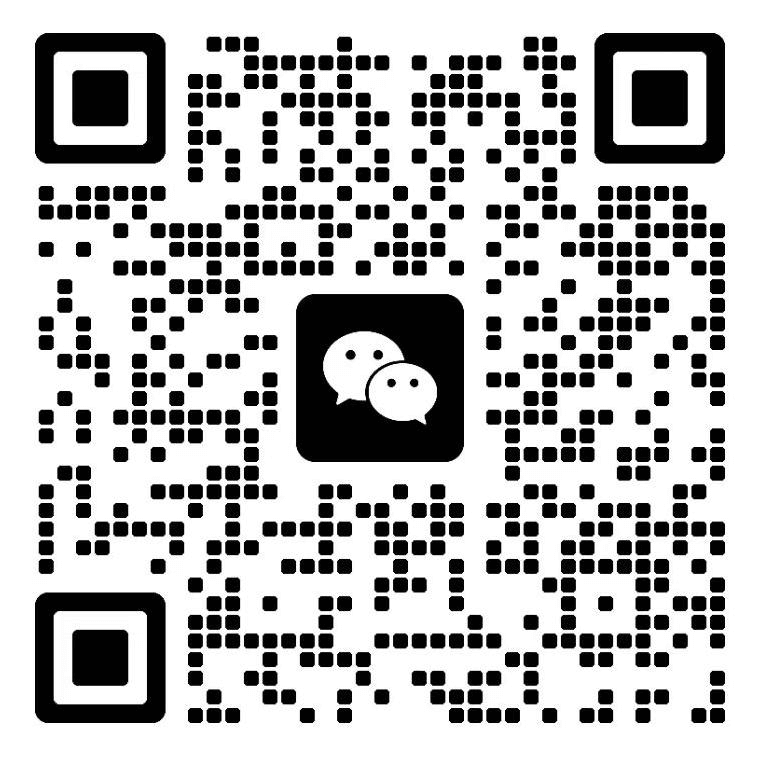
45个适合留学生Essay写作的连接词
连接词在essay中起着至关重要的作用。它们能够增强文章的连贯性、逻辑性和流畅性,使得读者能够更好地理解和跟随作者的思路。它们可以分为不同的类别,如引言和概述、表达观点和理由、表达比较和对比、表达结果和结论、表达时间和顺序等。每个类别中的连接词都有其特定的功能和用途,可以根据写作需要选择合适的连接词来组织文章结构和表达思想。
本篇文章将重点给同学们列举一些位于不同板块的连接词以及用法和举例,帮助同学们更好地完成各类essay写作。
一、Essay连接词的定义
Essay连接词是指在写作essay或其他学术文章时使用的词语或短语,用于建立句子、段落和章节之间的逻辑关系,以确保文章的连贯性和逻辑性。
二、为什么要用连接词
正确使用连接词可以提升文章的质量,使读者更好地理解和欣赏你的观点和论证。以下是连接词在essay中的几个重要方面:
- 表达逻辑关系:连接词可以帮助表达观点之间的逻辑关系,如因果关系、对比关系、顺序关系等。通过使用适当的连接词,可以清晰地展示论证的过程,使得读者能够理解每个观点之间的联系和推理。
- 强调关键观点:连接词可以突出强调关键观点或信息。例如,使用连接词”importantly”或”significantly”可以引起读者对某个重要观点的注意,使其在整个文章中更加突出。
- 连接段落和句子:连接词在连接段落和句子之间起到桥梁的作用,使文章的结构更加紧凑和连贯。它们能够帮助引导读者从一个观点或段落过渡到下一个,使得文章的内容更加流畅,读者能够更好地跟随作者的思路。
- 提供转折和对比:连接词可以用于表达转折和对比的关系,使文章更加丰富和有层次感。通过使用适当的连接词,如”however”、”nevertheless”、”on the other hand”等,可以引入相反的观点或证据,从而提供更全面、客观的分析和讨论。
引出例证和支持:连接词可以用于引出例证、支持和解释观点的证据。例如,使用连接词”for example”或 “specifically”可以引出具体的例子,从而更好地支持论点并增强说服力。
总之,连接词在essay中扮演着重要的角色,它们能够帮助组织思路、提供逻辑关系、增强连贯性,并使文章更具说服力和可读性。
三、Essay连接词的具体用法
1、引言部分
在essay的引言部分,可以使用以下连接词来引出主题、背景或问题,并引出你的论点或观点:
1.1 Introducing the topic(引入话题)
在essay的引言部分,可以使用以下连接词来引出主题、背景或问题,并引出你的论点或观点:
| 序号 | 连接词 | 用法 | 目的 | 例子 |
| 1 | Nowadays(现今) | 用于引出当前的情况、趋势或问题 | 起读者的兴趣,说明话题的时效性 | Nowadays, more and more people are relying on smartphones for communication and information access. |
| 2 | In recent years(近年来) | 指近年来发生的事情、变化或趋势 | 引出与话题相关的最新发展,提供背景信息 | In recent years, there has been a growing awareness of the importance of mental health in society. |
| 3 | In today’s society(在今天的社会中) | 用于描述当代社会的情况、现象或问题 | 引导读者关注当前社会的重要议题,引起思考 | In today’s society, the impact of social media on interpersonal relationships is a subject of significant concern. |
| 4 | Over the past decade(过去十年里) | 描述过去一段时间内的变化、趋势或进展 | 强调时间范围内的发展,为论述提供背景 | Over the past decade, advancements in technology have revolutionized the way we communicate and access information. |
| 5 | It is widely recognized that(广泛认为) | 引出一个被广泛接受或认可的观点或事实 | 强调某个观点的普遍性和重要性 | It is widely recognized that climate change poses a significant threat to the environment and human well-being. |
| 6 | It is well known that(众所周知) | 引出一种被普遍知晓或认可的事实或观点 | 强调某个观点或事实的普及和广泛认知 | It is well known that regular exercise is beneficial for physical and mental health. |
| 7 | It is no secret that(毫不秘密) | 用于引出一个被广泛知晓但不需要保密的事实或观点 | 强调某个观点或事实的显而易见性 | It is no secret that the global economy is heavily influenced by the decisions of major financial institutions. |
| 8 | With the advancement of(随着…的发展) | 用于描述某一领域或领域内的进展或发展 | 为了引出某一发展对论题的重要影响,提供背景信息 | With the advancement of artificial intelligence technology, automation has become a prominent feature in various industries. |
1.2 Stating the problem (陈述问题)
| 序号 | 连接词 | 用法 | 目的 | 例子 |
| 9 | The issue at hand (正在讨论的问题) | 用于引出当前正在讨论的问题或情况 | 引起读者的兴趣,明确提出论文的主题或焦点 | The issue at hand is the rising rates of obesity among children. |
| 10 | The main concern (主要关注点) | 用于指出在论文中最重要的问题或关注点 | 强调论文的重要性和关注的焦点 | The main concern is the ethical implications of genetic engineering. |
| 11 | The key question (关键问题) | 用于引出需要解答或探讨的关键问题 | 明确论文的研究目标,引导读者进入论文的主题 | The key question is how to effectively address income inequality. |
1.3 Introducing your thesis (引出论点)
| 序号 | 连接词 | 用法 | 目的 | 例子 |
| 12 | This essay will argue that (本文将论证) | 用于明确指出论文将支持的论点或观点 | 提前告知读者要期待的论证方向,引起兴趣 | This essay will argue that implementing stricter gun control laws can reduce gun violence. |
| 13 | The purpose of this essay is to (本文旨在) | 用于明确说明论文的目的或意图 | 阐明论文的研究目标,向读者传达论文的重点 | The purpose of this essay is to examine the impact of social media on interpersonal relationships. |
| 14 | This paper aims to demonstrate that (本文旨在证明) | 用于表明论文的目标是展示或证明一个特定的观点或结论 | 明确提出论文的目的和预期结果 | This paper aims to demonstrate that renewable energy sources are a viable alternative to fossil fuels. |
| 15 | The central claim of this essay is that (本文的核心观点是) | 用于明确提出论文的核心观点或论点 | 强调论文的核心主张,向读者传达论文的中心思想 | The central claim of this essay is that cultural diversity enhances societal progress. |
| 16 | It will be argued that (将会论述) | 用于表明论文将会对某个观点进行论述和证明 | 引出论文的论证结构,提供读者预期的论证方向 | It will be argued that education plays a crucial role in poverty alleviation. |
| 17 | The focus of this essay is on (本文的重点是) | 用于明确指出论文的重点或关注的方面 | 阐明论文的焦点,指导读者理解论文的主题 | The focus of this essay is on the benefits of exercise for overall health. |
以上这些连接词可以在essay的引言中使用,以引入话题、背景或问题,并引出你的论点或观点。使用这些连接词可以很直观的展示句与句之间的关系,更方便读者找到重点。接下来介绍正文部分的连接词和其运用。
二、四个正文大类连接词的运用
正文部分的连接词主要包含四个方面的连接词建议,分别是:表达观点和给出理由、表达比较和对比、表达结果和结论、表达时间和顺序。
1. 表达观点和给出理由
当表达观点和给出理由的时候,在essay中使用适当的连接词可以帮助你的论述更加连贯和有逻辑性。以下是一些常用的连接词及其用法和目的,以及具体的例子:
1.1 表达观点 (Expressing viewpoints):
| 序号 | 连接词 | 用法 | 目的 | 例子 |
| 18 | In my opinion, (在我看来) | 用于明确陈述个人观点 | 表达个人立场或观点 | In my opinion, technology has greatly improved our lives by facilitating communication and streamlining tasks. |
| 19 | I believe that (我相信) | 用于表达个人信念或看法 | 强调个人观点的坚定性 | I believe that education is the key to personal and societal development. |
| 20 | From my perspective, (从我的角度看) | 用于陈述个人观点或看法 | 明确表达个人角度或观察 | From my perspective, globalization has both positive and negative impacts on local economies. |
1.2 表达观点 (Expressing viewpoints):
| 序号 | 连接词 | 用法 | 目的 | 例子 |
| 21 | Firstly, (首先) | 用于列举第一个理由或论据 | 引出第一个支持观点的理由 | Firstly, regular exercise improves physical health by strengthening the cardiovascular system and increasing endurance. |
| 22 | Moreover, (此外) | 用于添加一个额外的理由或论据 | 提供额外的支持或证据 | Moreover, social media platforms allow individuals to connect with others around the world, fostering cultural exchange and understanding. |
| 23 | Additionally, (此外) | 用于引入另一个支持观点的理由 | 提供额外的论证或补充信息 | Additionally, implementing renewable energy sources reduces greenhouse gas emissions and mitigates the impact of climate change. |
| 24 | Furthermore, (而且) | 用于进一步强调观点或提供更多支持性的理由 | 加强论证的连贯性和逻辑性 | Furthermore, investing in early childhood education has long-term benefits in terms of academic achievement and social development. |
| 25 | Lastly, (最后) | 用于列举最后一个理由或总结观点 | 引出最后一个支持观点的理由或进行总结 | Lastly, access to quality healthcare is essential for promoting overall well-being and reducing healthcare disparities. |
2. 表达比较与对比
| 序号 | 连接词 | 用法 | 目的 | 例子 |
| 26 | Similarly, (类似地) | 用于比较两个或多个事物、概念或观点的相似之处 | 强调相似性或共同点 | Similarly, both cats and dogs are popular choices as pets for their companionship. |
| 27 | Likewise, (同样地) | 用于指出两个或多个事物、概念或观点之间的相似性 | 表达相同或类似的特征或特点 | Likewise, both novels explore the theme of love and its complexities. |
| 28 | In the same way, (以同样的方式) | 用于表达两个或多个事物、概念或观点之间的相似之处 | 将两者放在同一类别或范畴中进行比较 | In the same way, both painting and photography are artistic forms of visual expression. |
| 29 | However, (然而) | 用于引出与前述事物、概念或观点形成对比的内容 | 表达对比或反驳前述观点 | However, cats are more independent compared to dogs and require less attention. |
| 30 | On the other hand, (另一方面) | 用于引出与前述事物、概念或观点相对立的事物、概念或观点 | 表达对比或对立的观点 | On the other hand, dogs are known for their loyalty and ability to form strong bonds with their owners. |
| 31 | In contrast, (相比之下) | 用于指出前述事物、概念或观点与之形成对比的内容 | 强调差异或相反的特征或特点 | In contrast, urban areas tend to have a higher cost of living compared to rural areas. |
| 32 | Whereas, (而) | 用于引出与前述事物、概念或观点有明显对比的内容 | 表达两个事物之间的差异或相反的特征 | Whereas some people prefer coffee for its bold flavor, others enjoy tea for its soothing properties. |
3. 表达结果与结论
3.1 表达结果 (Expressing results):
| 序号 | 连接词 | 用法 | 目的 | 例子 |
| 33 | Therefore, (因此) | 用于引出一个逻辑上的结果或结论 | 表明论证的逻辑推理或总结 | Therefore, it can be concluded that regular exercise contributes to improved physical fitness. |
| 34 | Thus, (因此) | 用于表明由前述观点或论据导致的结果 | 强调前述观点与结论之间的关系 | Thus, the implementation of stricter gun control laws can help reduce gun-related violence. |
| 35 | Consequently, (因此) | 用于表达一个因果关系或结果 | 指出前述因素导致的必然结果 | Consequently, the decline in funding for public education has had a negative impact on academic performance. |
| 36 | As a result, (结果) | 用于指出前述因素或观点导致的具体结果 | 强调因果关系或论证的结果 | As a result, the company’s profits significantly increased in the last fiscal year. |
3.2 表达结论 (Expressing conclusions):
| 序号 | 连接词 | 用法 | 目的 | 例子 |
| 37 | In conclusion, (总而言之) | 用于引出整体结论或总结 | 概括论文的主要观点和论证 | In conclusion, the study supports the hypothesis that environmental factors contribute to the development of certain diseases. |
| 38 | To sum up, (总结起来) | 用于对前述观点或论据进行总结 | 强调论文的主要发现或结论 | To sum up, the research highlights the importance of early childhood education in fostering cognitive and social development. |
| 39 | Overall, (总体而言) | 用于概括整个论文的主要内容和结论 | 提供对整体论证的综合评价 | Overall, the findings suggest that a balanced diet and regular exercise are key factors in maintaining a healthy lifestyle. |
| 40 | In summary, (总结) | 用于简明扼要地总结前述观点或论据 | 概括论文的要点或主要结论 | In summary, the research demonstrates a positive correlation between higher education levels and job prospects. |
4. 表达时间和顺序
| 序号 | 连接词 | 用法 | 目的 | 例子 |
| 41 | First, (首先) | 用于列举第一个事件、步骤或观点 | 引出第一个时间点或论点 | First, let’s examine the historical context of the Industrial Revolution. |
| 42 | Next, (接下来) | 用于引出下一个事件或步骤 | 表明论文中的顺序或流程 | Next, we will discuss the causes and consequences of climate change. |
| 43 | Then, (然后) | 用于表达紧接在前一个事件之后发生的事件 | 强调时间上的先后关系 | Then, the scientific community began to study the effects of pollution on marine ecosystems. |
| 44 | Afterward, (随后) | 用于指出在某个特定时间点之后发生的事件 | 引出紧接在前一个事件之后的事件 | Afterward, the government implemented new policies to promote renewable energy. |
| 45 | Finally, (最后) | 用于引出最后一个事件、步骤或观点 | 标志论文的结尾或总结 | Finally, we can conclude that the advancements in technology have revolutionized the way we communicate. |
作为留学生,在写essay时运用适当的连接词是提升写作能力和表达清晰度的重要技巧。连接词帮助我们在文章中建立起逻辑关系,使观点更加连贯、有条理,并使文章更具说服力。无论是表达递进关系、对比关系还是因果关系,正确使用连接词有助于展示你对话题的深刻理解和思考。
同时,连接词也能帮助我们与读者建立更好的沟通。通过使用恰当的连接词,我们能够引导读者理解我们的观点、论证和推理过程,使文章更易读、更具有逻辑性。这对于留学生来说尤为重要,因为我们可能需要用非母语的英语来表达我们的想法和论点。
所以,通过不断阅读和写作的实践,我们可以不断提高连接词的运用技巧。积累更多的词汇和短语,学习不同连接词的用法和语境,以及注意阅读优秀的范文和学术文章,这些都是提升我们写作能力的有效途径。
我们鼓励留学生在写作中注重连接词的运用,并通过不断练习和学习提升自己的写作水平。希望以上内容对您的essay写作有帮助,我们专注为全球留学生解决学术相关问题,如果你还有任何关于学业上的疑问或者需求,请随时联系我们。
专业代写/作业辅导/课程代修等服务



编程代写 CS Assignment代写 | 留学生编程代写 | 代码代写 | 100% 原创
CS 代写 | 留学生编程代写 | Assignm

